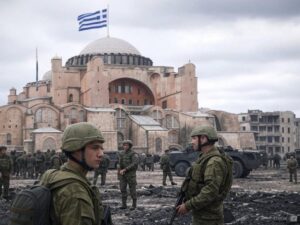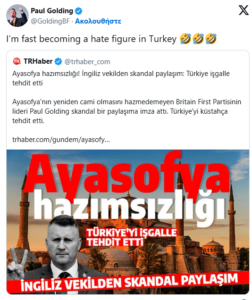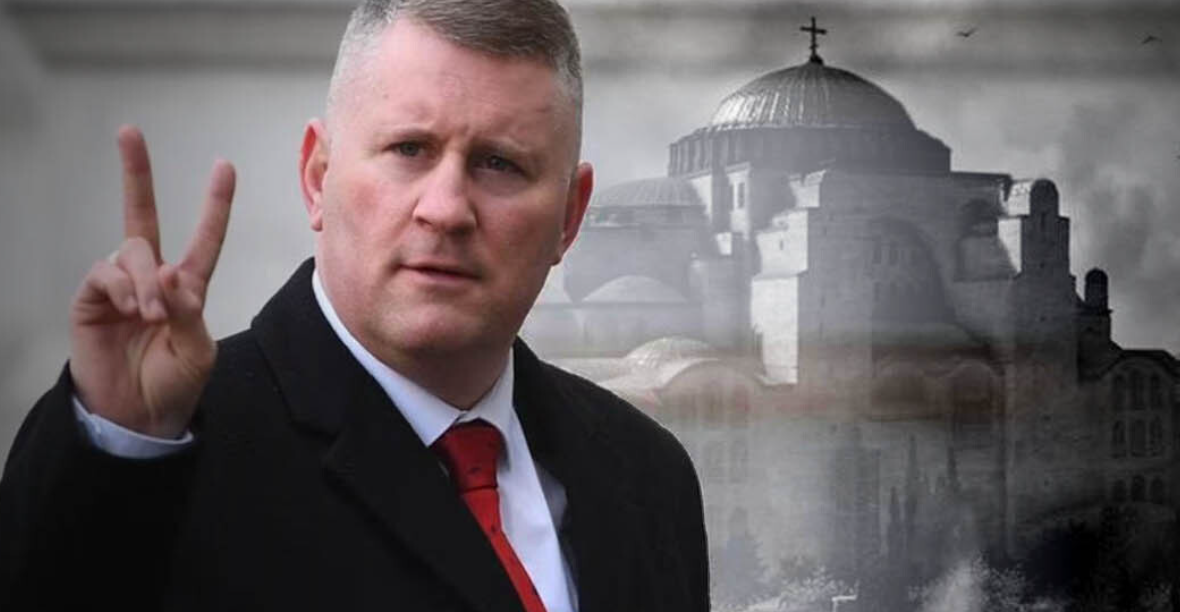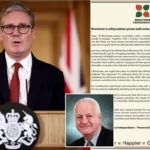The recent visit of the BNP (Bangladesh Nationalist Party) leader to Istanbul has created a whirlwind of reactions in the Turkish media landscape. As international politics increasingly intertwines with local sentiments, this visit has sparked discussions, debates, and even outrage across various platforms. The BNP leader’s engagement with Turkish officials has attracted attention not only for its political implications but also for its cultural resonance, highlighting the complexity of international relations and national identity.
BNP Leader’s Istanbul Visit Ignites Media Frenzy!

The arrival of the BNP leader in Istanbul has set off a media frenzy, with numerous outlets clamoring to cover the event. Headlines have exploded across Turkish newspapers and online portals, underlining the significance of this visit. Journalists have been quick to analyze the potential outcomes of this diplomatic encounter, noting that it could reshape the relationship between Bangladesh and Turkey.
On social media, the visit has garnered a mixed bag of responses, with hashtags related to the BNP leader trending swiftly. Supporters of the BNP have taken to platforms like Twitter and Facebook to express their excitement about the visit, emphasizing the importance of fostering ties between nations. Critics, however, have voiced their concerns regarding the implications of hosting a controversial political figure, leading to heated discussions and debates in the digital sphere.
Television networks have also jumped into the fray, dedicating segments to the BNP leader’s itinerary and the potential bilateral conversations anticipated during his stay. Political analysts have been invited to discuss the historical context of Bangladesh-Turkey relations and what this visit might signify for the future. The buzz surrounding this visit reflects the media’s role in shaping public perception and opinion on international events.
As the BNP leader engages with local officials, cameras are flashing, and reporters are on high alert, eagerly awaiting press releases and official statements. The anticipation surrounding this visit showcases the interest in how foreign political dynamics play out within Turkish borders, setting the stage for an evolving narrative that promises to develop in the days to come.
Turkish Media Reacts with Outrage Over BNP Arrival

In stark contrast to the excitement among some supporters, Turkish media has also reacted with palpable outrage over the BNP leader’s arrival. Editorials and opinion pieces have sprung up, expressing concerns about the BNP’s controversial history and its implications for Turkish domestic affairs. Many commentators have pointed out the significance of hosting a political figure associated with divisive policies, emphasizing the potential backlash it could evoke within the Turkish political landscape.
Certain media outlets have highlighted past allegations against the BNP, particularly regarding its stance on minority rights and governance. This scrutiny has led to calls for a reconsideration of diplomatic engagements that could unintentionally endorse potentially problematic ideologies. Critics have argued that fostering ties with such figures may tarnish Turkey’s international image, pushing for a more cautious approach to foreign relations.
The outrage is not limited to traditional media; social media channels are abuzz with heated discussions, and hashtags demanding accountability and transparency from Turkish officials have emerged. Activists and political opponents have utilized this moment to rally against perceived government missteps in foreign diplomacy, insisting that Turkey should uphold its values and principles when engaging with international figures.
As the BNP leader’s visit unfolds, the media continues to play a critical role, shaping narratives and public discourse around the implications of this high-profile encounter. The controversy surrounding his arrival raises essential questions about the nature of political hospitality and the responsibilities that come with it, prompting a wider conversation about the future of Turkey’s foreign policy.
Istanbul Welcomes BNP: A Controversial Encounter Unfolds
Despite the media uproar, Istanbul’s warmth remains ever-present as the BNP leader partakes in various engagements throughout the city. From cordial meetings with local officials to public events aimed at fostering cultural exchange, the visit is not without its moments of celebration. Many in the Turkish business community view this encounter as an opportunity to explore potential economic ties between the two countries.
The BNP leader’s schedule includes visits to local businesses and cultural institutions, showcasing a side of Bangladesh that emphasizes cooperation and mutual benefit. These interactions aim to highlight the shared cultural heritage and the potential for tourism and trade between Turkey and Bangladesh. While the backdrop of controversy looms, the spirit of diplomacy seeks to bridge divides and initiate constructive dialogues.
Local leaders and enthusiastic supporters have gathered to welcome the BNP leader, showcasing a vibrant display of flags and banners that represent the aspirations of both nations. This positive ambiance stands in stark contrast to the critical media narratives, presenting an alternative viewpoint that underscores the importance of international friendship and collaboration.
However, as the visit continues, the tension between the celebratory atmosphere and the media’s critical lens remains palpable. The juxtaposition of welcoming gestures and pointed criticism illustrates the complexities of political diplomacy, where every gesture is scrutinized, and every dialogue has the potential for far-reaching consequences.
Mixed Reactions: BNP’s Visit Stirs Up Turkish Headlines!
As the BNP leader’s visit progresses, mixed reactions continue to define the headlines across Turkish media. While some outlets focus on the opportunities for economic growth and cultural exchange, others remain steadfast in their criticism, questioning the motivations behind the visit and its potential impact on Turkish politics. This dual narrative captures the essence of how international relations can evoke both optimism and skepticism in equal measure.
Public opinion remains divided, with some citizens celebrating the visit as a chance to enhance bilateral ties, while others express dissatisfaction and concern over the BNP leader’s past. The contrasting sentiments reflect a broader discourse on national identity and the role of international diplomacy in shaping Turkey’s future. Debates around the ethical implications of such visits have emerged, calling for greater accountability in how the government engages with foreign political figures.
Political rallies and public demonstrations have also emerged in response to the visit, with various factions expressing their views on the appropriateness of hosting the BNP leader. Activists have taken to the streets, advocating for democratic values and warning against endorsing political ideologies that may not align with Turkey’s principles. These events contribute to the ongoing discourse about national integrity in the context of international relations.
As the media continues to churn out stories and analyses, the BNP leader’s visit remains a focal point for discussions on Turkey’s foreign policy direction. The unfolding narrative reflects the complexities of diplomacy, illustrating how a single visit can ignite widespread debate and reflection on a nation’s values, aspirations, and potential partnerships in an increasingly interconnected world.
The BNP leader’s visit to Istanbul has undoubtedly ignited a storm of reactions across the Turkish media landscape, reflecting the multifaceted nature of international diplomacy. From media frenzy to public demonstrations, the visit embodies the complexities of political engagement in a globalized world. As this story continues to unfold, it serves as a reminder of the importance of dialogue, understanding, and the ever-evolving nature of international relations. Whether the visit ultimately fosters closer ties or raises more questions, one thing is certain: the intersection of politics and media is poised to keep this narrative alive for the foreseeable future.














